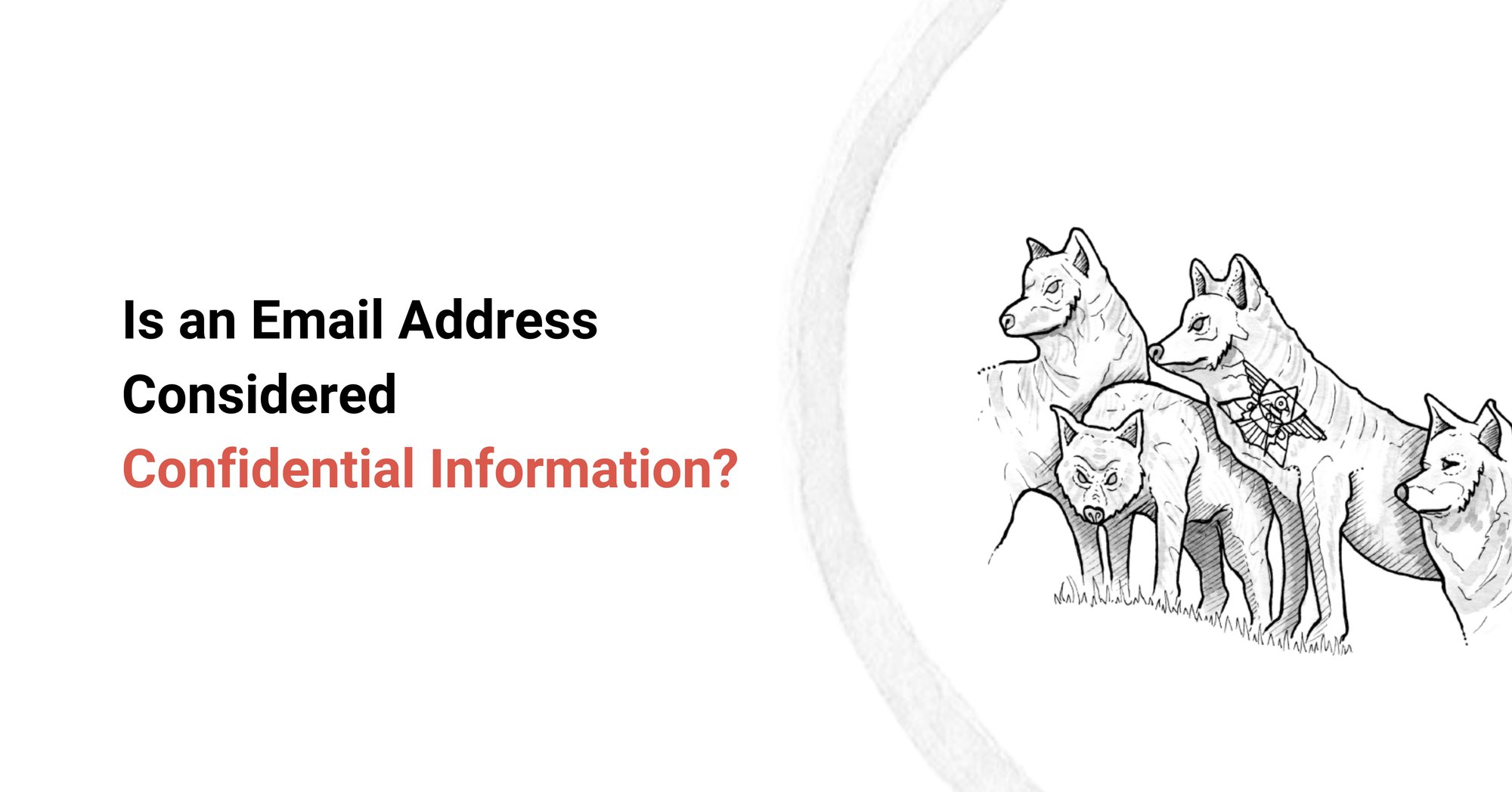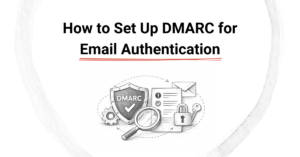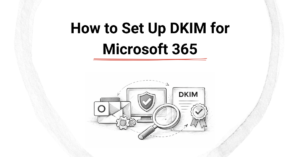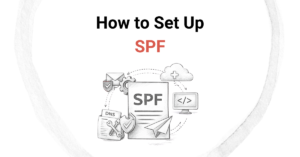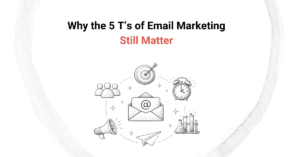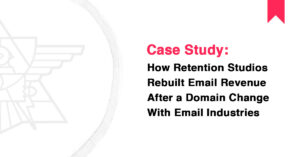Email addresses are one of the most commonly shared pieces of personal data online. Whether for business communication, personal accounts, or marketing, email addresses are integral to many digital interactions. But is an email address considered confidential information? Are they protected under privacy laws like other forms of personal data? This article explores whether email addresses qualify as confidential and how they are safeguarded under privacy regulations.
If you are a business handling customer data or a marketer managing email campaigns, understanding how to protect email addresses is essential. The risk of exposing email addresses goes beyond just spam; it can lead to severe issues like phishing attacks and identity theft. Keep reading to understand how laws like GDPR, CCPA, and others regulate email addresses and how to protect them.

What Is Considered Confidential Information?
Before exploring whether email addresses fall under confidential information, it's important to define what confidential data means. Confidential information refers to data that must be protected from unauthorized access, misuse, or disclosure. Privacy laws often classify certain data as requiring this protection, and email addresses are sometimes included in this category.
Here are examples of what is typically considered confidential:
Types of Confidential Information:
- Personal Identifiable Information (PII): Includes data that can identify a person, such as email addresses, phone numbers, or home addresses.
- Sensitive Data: Information such as social security numbers, financial records, or health data, which requires heightened protection.
- Corporate Confidential Data: Includes internal business information, trade secrets, and internal communications that must be kept private.
Is an Email Address Considered Confidential Information?
Now that we understand what constitutes confidential data, let’s discuss whether email addresses qualify as confidential information. Although email addresses are commonly shared publicly, they are often treated as personally identifiable information (PII) and are subject to privacy laws.
When Is an Email Address Considered Confidential Information?
Several privacy regulations classify email addresses as personal data, meaning they require protection. These laws define when and how email addresses must be secured.
GDPR (General Data Protection Regulation – EU)
Under the GDPR, email addresses are classified as personal data. Businesses must obtain explicit user consent before collecting or using email addresses. GDPR grants users control over their data, including the right to access, delete, and correct their email information. Organizations are also required to secure email data through encryption and limit access to authorized personnel.
CCPA (California Consumer Privacy Act – USA)
The CCPA considers email addresses as personal information, offering California residents the right to know what data is being collected, the ability to delete personal data, and the right to opt-out of having their data sold. Businesses must comply with these requirements when handling email addresses.
Other Privacy Laws:
- PIPEDA (Canada): Like GDPR, Canada’s privacy law treats email addresses as personal information, requiring consent before collection.
- LGPD (Brazil): Brazil's data protection law applies the same rules to email addresses as GDPR.
- Australia’s Privacy Act: Australia’s law protects email addresses as personal data under its Privacy Act.
When Email Addresses Are Not Considered Confidential
Despite their classification as personal information in many cases, there are situations where email addresses are not treated as confidential.
Publicly Available Emails
When email addresses are publicly listed (e.g., contact addresses like info@company.com), they may not receive the same privacy protections. Public business emails are seen as contact points for the organization, and their exposure is generally more accepted.
Emails Used for Work Purposes
Corporate email addresses, such as john.doe@company.com, may have fewer privacy protections than personal email addresses, particularly when used for work purposes. Businesses typically manage email systems and face fewer restrictions on internal communications compared to personal emails under privacy regulations.
Risks of Exposing Email Addresses
Whether or not email addresses are considered confidential, their exposure can lead to several risks. Here's an overview of the dangers associated with exposed email addresses.
Spam and Unwanted Emails
Exposing email addresses can result in unwanted spam, often caused by bots scraping publicly available emails from websites. This can clutter inboxes and, in some cases, expose users to malicious content.
Solution: Use email obfuscation techniques or CAPTCHA on web forms to prevent bots from collecting email addresses.
Phishing Attacks
Phishing attacks are another significant risk associated with exposed email addresses. Cybercriminals may impersonate legitimate companies or individuals to trick users into revealing sensitive information, such as login credentials or financial data.
Solution: Implement email security protocols like DMARC, SPF, and DKIM to protect against phishing attempts and ensure that attackers cannot spoof your domain.
Data Breaches and Identity Theft
Stolen email addresses can be used in credential stuffing attacks, where attackers try to use the same email and password combination across various websites. If successful, this can lead to identity theft and exposure of sensitive personal information.
Solution: Encourage users to enable multi-factor authentication (MFA) for added security beyond just an email and password.
Best Practices for Handling Email Addresses Securely
To comply with privacy regulations and reduce security risks, businesses should follow best practices for securing email addresses. Here are some steps to consider:
Obtain Consent for Email Collection
Always ask for explicit consent before collecting email addresses. This is required under privacy laws like GDPR and CCPA. Inform users about how their email will be used and offer them the option to opt in before collecting data.
Compliance Tip: Implement a clear opt-in process for email collection, especially when sending marketing communications.
Use Encryption and Secure Storage
Encrypting email addresses is one of the most effective ways to protect them from unauthorized access. Encrypted data is more difficult to breach.
Tools: Use services like AWS KMS or Google Cloud Encryption to securely store email data and keep it protected from breaches.
Limit Email Sharing and Exposure
Limit access to email addresses within your organization. Only employees who need access to this information should be able to view it.
Actionable Tip: Implement role-based access control (RBAC) for email databases to ensure that only authorized personnel can access sensitive data.
Implement Email Anonymization Where Possible
Anonymize or hash email addresses when sharing data for analytics or reporting purposes. This can help protect user privacy while allowing your team to analyze trends.
How Companies Should Handle Customer Email Addresses
The way a business handles email addresses directly impacts both security and compliance. Here are a few best practices for managing customer email addresses responsibly:
Marketing Emails and Privacy Regulations
Ensure that marketing emails comply with regulations like GDPR and CAN-SPAM. These laws require businesses to give users the ability to opt out of receiving promotional emails and request the deletion of their data.
Corporate Emails vs. Personal Emails
Understand the difference between corporate and personal email addresses. While corporate emails may be subject to fewer privacy protections in some cases, personal emails require stricter security measures.
Tip: Keep personal and corporate email data separate to avoid confusion and ensure compliance with privacy laws.
Secure Contact Forms and Data Collection
When collecting email addresses on your website, use secure forms with CAPTCHA to prevent bots from scraping data. Additionally, mask or encrypt email fields in public-facing forms.
Common Mistakes Businesses Make with Email Privacy
Even with the presence of privacy laws, businesses still make mistakes when handling email addresses. Here are a few common errors to avoid:
Sending Emails Without Permission
Sending marketing emails to individuals who have not consented is a common mistake. This violates privacy laws like GDPR and CCPA and can lead to legal consequences.
Solution: Implement double opt-in processes to ensure that users fully consent to receive marketing emails.
Storing Emails in Unsecured Databases
Storing email addresses in unsecured databases increases the risk of data breaches. Attackers can exploit email data if it is stored in plain text.
Solution: Use encryption and strong access controls to safeguard email addresses.
Selling or Sharing Email Lists
Selling or sharing email addresses with a third party without permission is a serious violation of privacy laws. Unauthorized sharing of data can lead to hefty fines and legal actions.
Solution: Always ensure that any data sharing complies with privacy regulations, and obtain consent from users before selling or sharing their email data.
Tools to Help Protect Email Privacy
Several tools are available to help businesses protect email data and ensure compliance with privacy laws:
Email Encryption Tools
Services like ProtonMail, Tutanota, and Microsoft 365 Encryption offer end-to-end encryption for email communications, preventing unauthorized access.
Email Security & Authentication
DMARC, SPF, DKIM, and tools like ZeroBounce help authenticate emails and protect against phishing attacks.
Compliance & Privacy Management
Privacy management tools like OneTrust, TrustArc, and DataGrail—as well as guidance from experienced lawyers—can help automate privacy processes and ensure your business remains compliant with global data protection regulations.
Final Verdict: Is an Email Address Considered Confidential Information?
In most cases, yes. Under privacy laws like GDPR and CCPA, email addresses are considered personal data and must be protected. Businesses are required to handle email addresses with care, ensuring that they are collected, stored, and used securely.
However, there are exceptions. Publicly available email addresses (like business contact emails) and corporate emails may not receive the same level of protection as personal email addresses.
Conclusion
Email addresses are generally treated as personal information under privacy regulations and must be handled securely. By following best practices such as obtaining consent, using encryption, and limiting exposure, businesses can safeguard email addresses and comply with privacy laws.
Need help securing your email data? Contact us for a privacy compliance audit to ensure your business stays protected!

